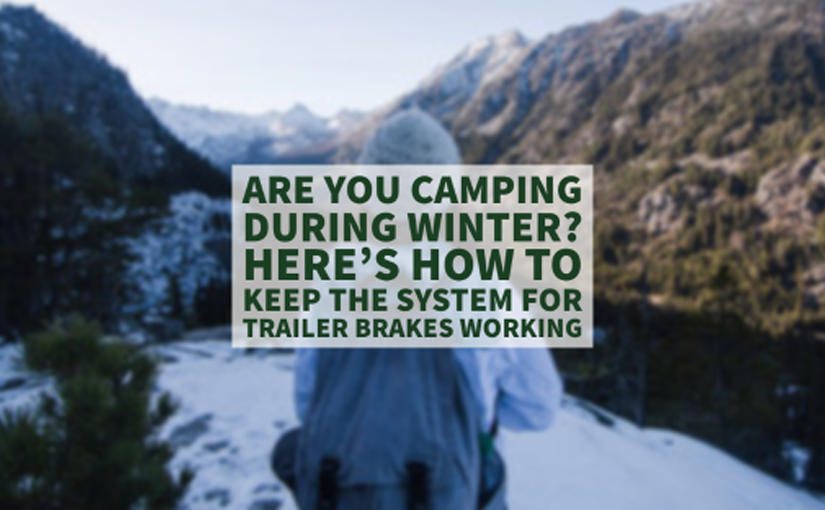While most RV campers pack their trailers and head south during the winter season, avid campers stick around to enjoy the sparkling snow, quiet campgrounds, and the peaceful woods. Winter RV camping provides a break from the scorching summer season and is an affordable way of exploring different camping parks. With more than 16,000 public and privately owned campgrounds, campers are spoilt for choice during winter RV excursions. While exploring the Northern parts of the country, you want to keep an eye on the system for trailer brakes because it is prone to freezing. Temperatures drop below zero add moisture to the roads in the form of ice and snow. When mixed with salt or corrosive chemicals used to keep roads clear, they affect the trailer brake system. So how do you keep the brakes from freezing? Check out these four suggestions.
Check the Air Dryer and Filter
Equipping your trailer with an air dryer doesn’t stop the brake system from freezing. Moisture still accumulates in the air tanks, leading to freezing. As such, you want to check this component regularly and drain it daily. Observe the amount of water draining out; if it’s increasing every time, check the air filter, too. Air filters prevent particles, dust, and debris from reaching the engine and ensure a balanced mixture of fuel and air to enhance performance.
A slight drop in temperature causes condensation, which then makes the system for trailer brakes freeze. If you hadn’t changed them in the fall, it may be a good time to install new ones. However, if the filters are in good condition, it would help if you disassembled the air valves and lines and checked them for wear and tear and leaks.
The rule of thumb states the components should be removed at least twice a year and blown using an air compressor. It would help if you kept a bottle of airline antifreeze in your car, too. Add a shot of the product into the supply line gland once the airlines freeze. While you’re at it, examine the purge valve for corrosion or accumulation of grit and replace it if necessary. This simple procedure can keep RV trailer brake controllers operating safely throughout the winter season.
Avoid Idling for Long Periods
Camping entails savoring the beauty of nature, but you don’t want to linger in one place for too long during winter. Keeping your trailer idle for extended periods can cause lines to freeze and affects the air compressor. If you could park the trailer indoors, it goes a long way in preventing your trailer brake controller from freezing.
Inspect the Disc Brakes
A visual inspection of the disc brakes helps identify faulty components that need to be replaced. Start by checking the dust plug and the chamber housings and proceed to the guide pins looking for tears. Ripped boots allow moisture into the trailer brake wiring system that can lead to long-term damage. Part of prepping discs brakes for winter also requires replacing the air dryer cartridges ahead of the winter months. This is because moisture can get into the system causing an air brake freeze-up. Also, if the vehicle has an oil-coalescing cartridge, replace it with a new one to maintain the quality of the air entering the trailer brake controls.
How to Deal With a Freezing System for Trailer Brakes
You may have forgotten to drain the tank lines and the braking system freezes to the drum. One way to remedy the situation is to reduce the air supply and restore it until the ice comes loose. This technique is most effective when one brake drum freezes to the pad. Also, you can add washer fluid or methyl hydrate fluid. Either of the products can melt the ice on the braking system quickly. Be sure to keep away from open flames when using the fluid as it’s flammable.
Camping during the winter can be fun and nerve-wracking at the same time. The bad weather strikes hard on the system for trailer brakes, hence the need to inspect it before and after the trip. You can identify problems and correct them on time so you can have an enjoyable camping experience.
Hayes Towing Electronics Products are Proudly Made in the U.S.A. and In-Stock!












